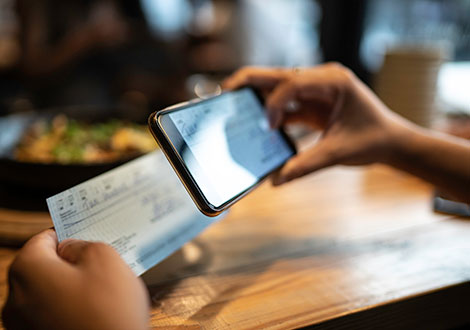Safeguarding Customer Information
At First National Bank of Huntsville we protect customer privacy by ensuring that only employees who have a business reason for knowing information have access to it. Employees are educated on the importance of maintaining the confidentiality of customer information and on these privacy principles. We maintain physical, electronic and procedural safeguards that comply with federal regulations to guard your nonpublic personal information.
Internet Privacy
Visitors to First National Bank of Huntsville’s Website remain anonymous. We do not collect identifying information about visitors to our site. We may use standard software to collect non-identifying information about our visitors, such as:
- Date and time our site was accessed
- IP address (a numeric address given to servers connected to the Internet)
- Web browsers used
- City, state and country
The Bank uses this information to create summary statistics and to determine the level of interest in our Website. Some areas of our Website may use a “cookie” temporarily stored in the visitor’s computer memory (RAM) to allow the web server to log the pages you use within the site and to know if you have visited the site before.
Please note that any message sent to the bank via normal e-mail is not encrypted, so please do not include any personal or sensitive information such as account numbers, social security numbers or passwords.
Our Website is Not Targeted or Marketed to Children.
External Site Disclosure
At certain places on our Website there are links to other web sites. First National Bank of Huntsville does not endorse, approve, certify, or control those external sites and does not guarantee the accuracy, completeness, efficiency, timeliness or accurate sequencing of the information contained on them. First National Bank of Huntsville cannot be responsible for protecting any personal information you may provide to those web sites. Please examine each external links’ privacy statement before providing information.
Notify Us of Inaccurate Information We Report to Consumer Reporting Agencies.
Please notify us if we report any inaccurate information about your account(s) to a consumer reporting agency. Your written notice describing the specific inaccuracies should be sent to us at the following address: First National Bank of Huntsville, PO Box 659, Huntsville, TX 77342-0659.
Important Information About Procedures for Opening a New Account
To help the government fight the funding of terrorism and money laundering activities, federal law requires all financial institutions to obtain, verify and record information that identifies each person who opens an account. What this means for you: When you open an account, we will ask for your name, address, date of birth and other information that will allow us to identify you We may also ask to see your driver’s license or other identifying documents
Cybersecurity & Fraud Center
First National Bank of Huntsville is committed to safeguarding your personal and financial information. Please remember that it is our commitment to you to never ask you for personal information via email.
8 Tips to be more Cybersecure
- Email a Friend
If it seems too good to be true, it is probably fraud. Don't believe that lottery awards staff or princes from a foreign country will contact you by email! - Fraudulent Payments
Be on guard against fraudulent checks, cashier's checks, money orders or electronic fund transfers sent with a request for you to wire back part of the money. - Unsolicited Offers
Be wary of unsolicited offers that require you to "ACT FAST" - Stay Up-To Date
Make sure your device is up-to-date with the latest security updates for your operating systems - Windows, Apple IOS, mobile phone IOS (Apply, Android, etc). - Warnings and Errors
Do not trust websites with certificate warnings or errors. - Beware of Email Attachments
It's never a good idea to click on an email attachment or free software from unknown sources. You could end up exposing your system to online fraud and theft. - Sharing Online
Watch how much you share online. The more you post about yourself on social networking sites, the easier it may be for someone to use that information to access your accounts, steal your identity and more. Protect your personal information by maximizing your privacy settings. - Financial Scams
Be aware of disaster-related financial scams. Con artists take advantage of people after catastrophic events by claiming to be from legitimate charitable organizations when, in fact, they are attempting to steal money or valuable personal information.
8 Tips for Banking Online Safely
- Monitor your accounts regularly.
Make sure that all transactions posted are ones you have authorized. Report any suspected fraudulent or suspicious activity to your bank immediately. - Look out for strange emails!
Don't respond to emails that claim to be from your bank (or any other company) requesting your account details or passwords. Banks will not reach out to you over email to ask for your account details. - Avoid clicking links in emails.
It is usually much safer to log in to your bank website manually to ensure you are entering a secure site. - Change your bank passwords regularly.
Avoid using the same password across multiple sites and make sure you are choosing a strong password that is a mix of upper and lower case letters, numbers and special characters. Avoid using any words or phrases that contain your name, initials, or your birthdate. - Enable two-factor authentication.
Many financial institutions have added a layer of security for account holders. Two-factor authentication requires you to enter an extra verification credential before you can access your account. - Disable automatic login.
Do not allow your web browser to store private username and password information for your online banking websites. - When available, only use your bank's official mobile apps.
And make sure you download apps from a reputable sources such as the Apple Store or Google Play Store. - Not sure if something is legitimate?
Do you have questions about your bank's technology? Call them - they will be happy to help!


